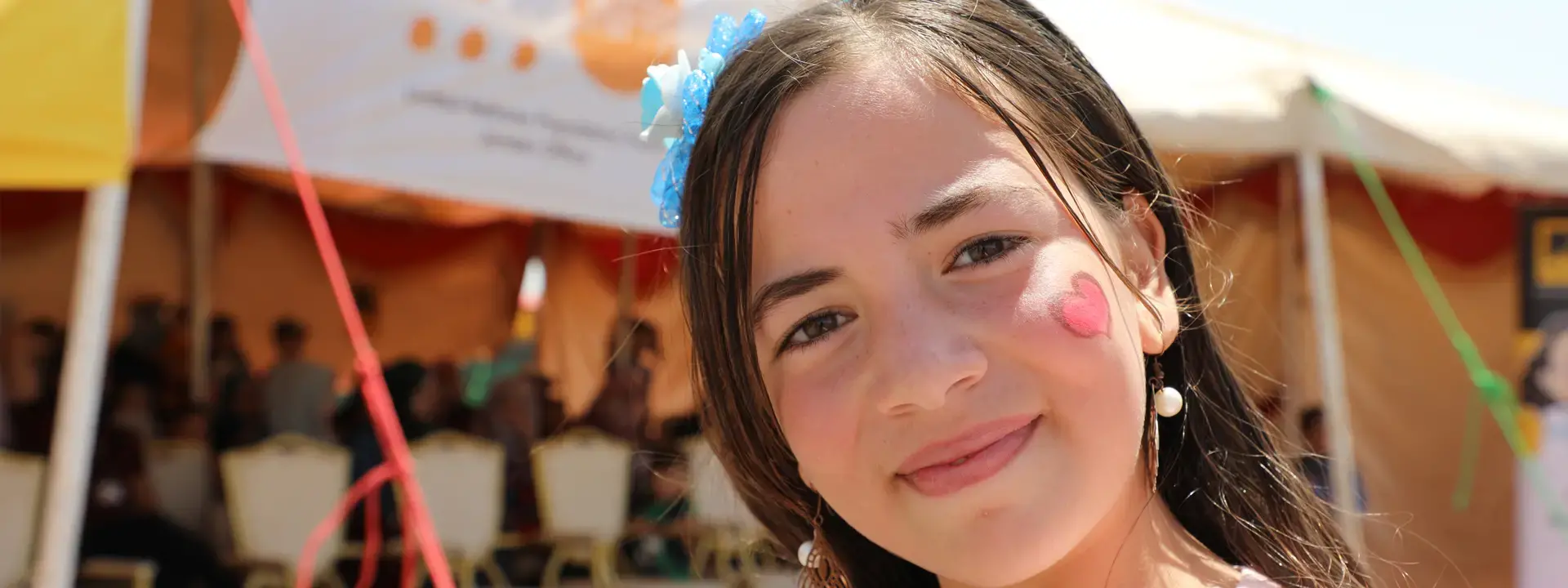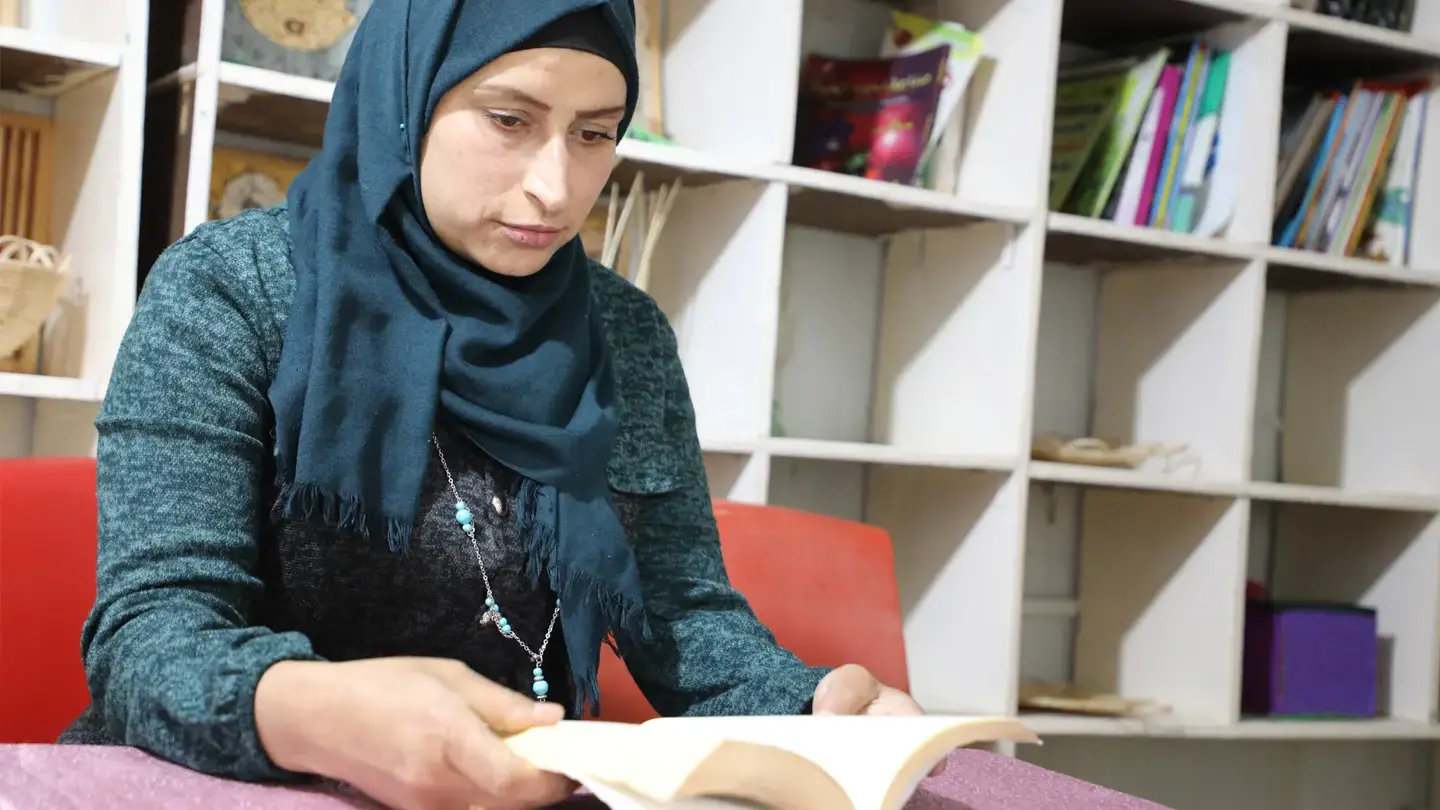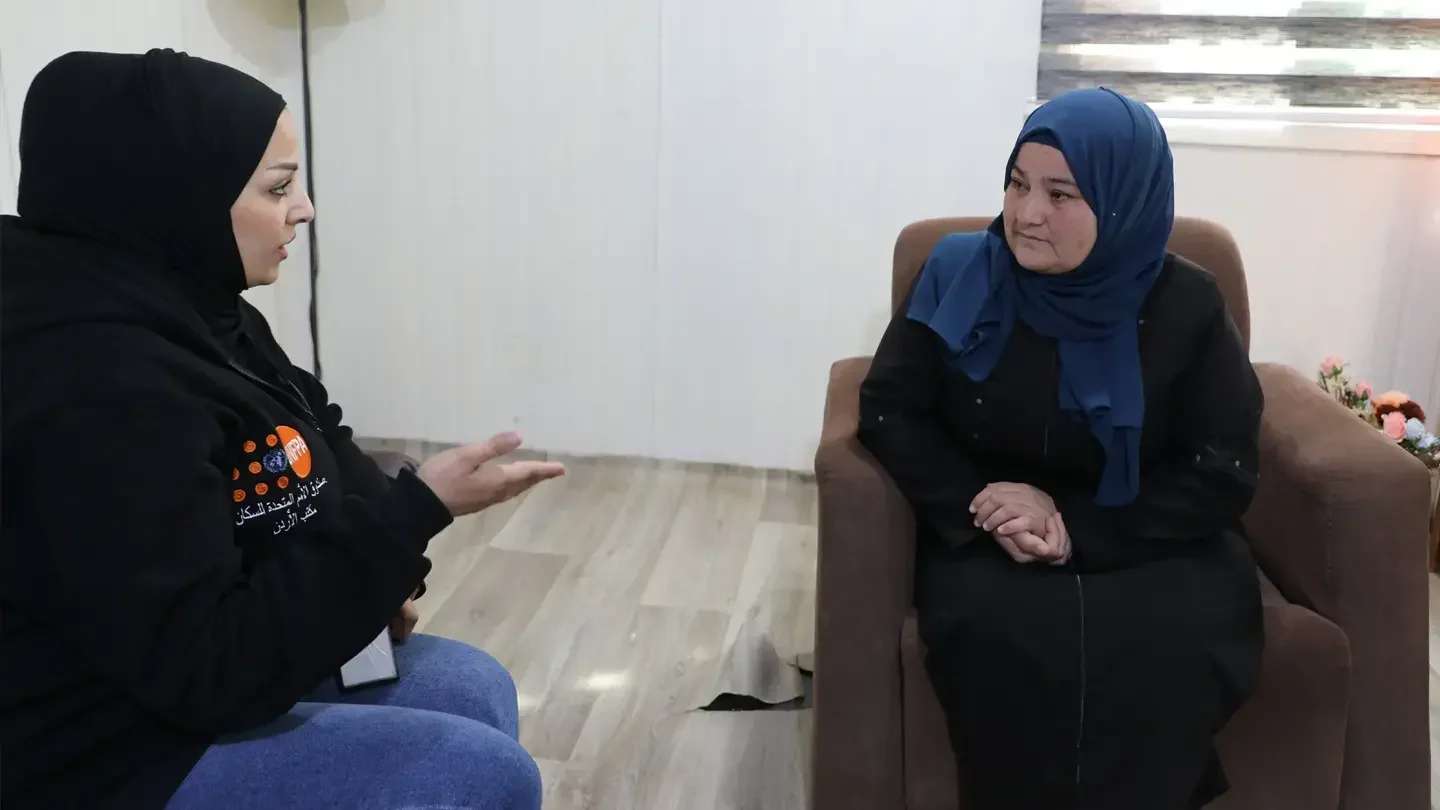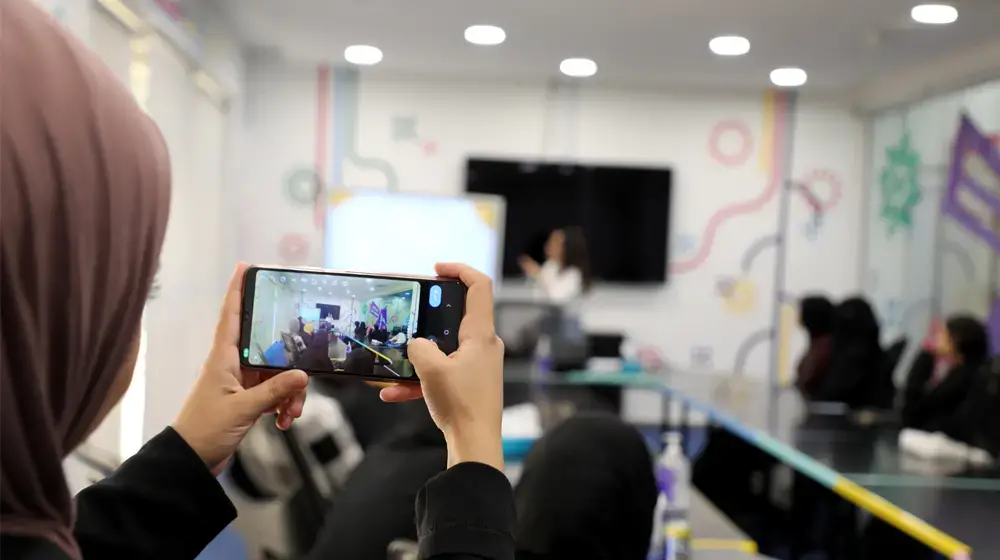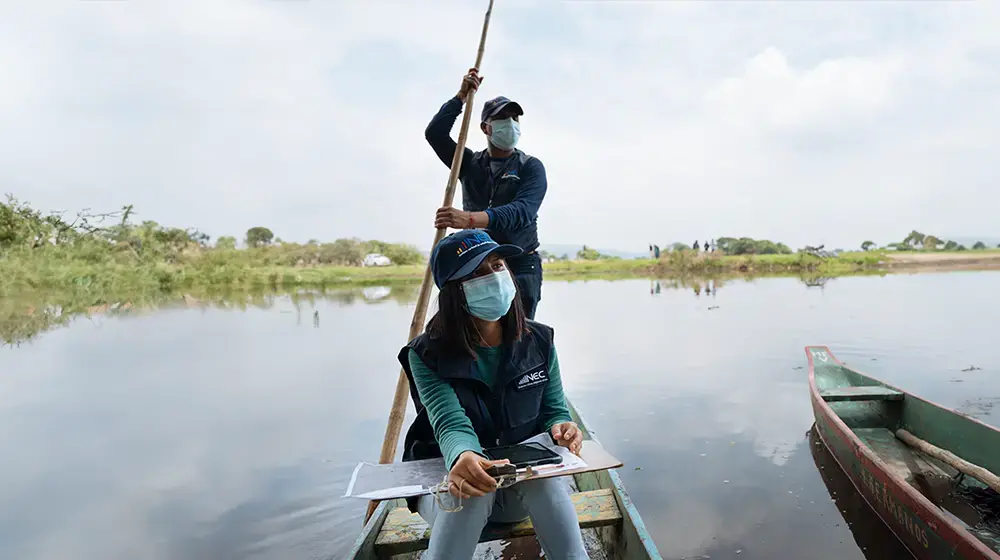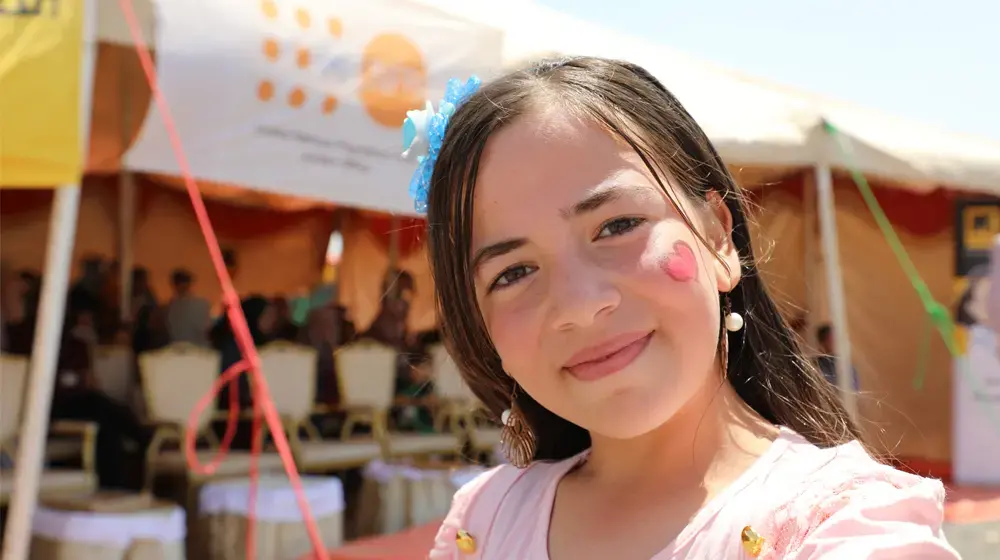Gender-Based Violence and Harmful Practices
Gender-based violence is one of the most prevalent human rights violations in the world. It knows no social, economic or national boundaries. Worldwide, an estimated one in three women will experience physical or sexual abuse in her lifetime. Gender-based violence undermines the health, dignity, security and autonomy of its victims, yet it remains shrouded in a culture of silence.
Harmful practices are persistent practices and behaviours that are grounded on discrimination on the basis of sex, gender, age and other grounds as well as multiple and/or intersecting forms of discrimination that often involve violence and cause physical and/or psychological harm or suffering. Harmful cultural practices, such as child marriage and female genital mutilation (FGM), are discriminatory practices committed regularly over long periods of time that communities and societies begin to consider acceptable.
Gender-based violence is a significant issue in Jordan, with women and girls experiencing various forms of violence and discrimination due to their gender. The prevalence of violence against women affects all segments of society regardless of their social or economic status. The most common forms of gender-based violence in Jordan include physical violence, sexual violence, emotional abuse, and sexual harassment. These forms of violence can occur in a range of settings, including the home, the workplace, and public spaces.
The Jordanian government has taken steps to address gender-based violence, including passing policies and laws, and increasing awareness through public campaigns. However, much work remains to be done to prevent and address gender-based violence in Jordan, including addressing social norms and beliefs that perpetuate violence against women and girls, providing better support and resources for survivors of violence, ensuring that perpetrators are held accountable for their actions and tackling child marriage, which remains a concern, particularly among refugees.
Gender-based violence (GBV) has a significant impact on individuals, families, and communities in Jordan. The latest Jordan Population and Family Health Survey (DHS) 2017-2018 reveals that 29.5% of ever-married women aged 15-49 reported experiencing physical, sexual, or emotional violence by their husband or partner at some point in their lives. Among women who had experienced physical or sexual violence, 41% reported injuries.
Additional data from the latest GBV IMS reports (2020 and 2021, analyzing data on reported GBV incidents by 7 data gathering organizations in Jordan) provide further insight into the GBV trends and wide-ranging consequences for individuals and communities in the country. GBV not only affects the physical and emotional well-being of survivors but also has economic and social consequences that can perpetuate the cycle of violence. These studies highlight the urgent need for continued efforts to prevent and respond to GBV in Jordan.
What does UNFPA do in Jordan?
As the lead agency in working to respond to and reduce gender-based violence, UNFPA works in Jordan in collaboration with the government, civil society organizations, and other partners to address gender-based violence and promote gender equality.
UNFPA comprehensive GBV prevention and response program in Jordan contributes to the UNFPA’s Jordan Country outputs through the following areas of intervention:
Supporting policy and accountability frameworks
UNFPA, in Coordination with NCFA and MoSD, has developed the “Executive Plan for the National Priorities for strengthening the response to Gender-Based Violence, Domestic Violence, and Child Protection 2021-2023” in coordination with NCFA and MoSD. The plan was launched in 2022 and NCFA has undertaken monitoring of the implementation of the plan in coordination with the different relevant partners.
UNFPA is also supporting the Government of Jordan in implementing and monitoring the National Action Plan to address Child Marriage, which includes measures to improve access to education for girls, increase awareness of the negative impacts of child marriage, strengthen child protection systems, and enhance law enforcement and legal frameworks to prohibit child marriage.
Providing high-quality services to respond and prevent gender-based violence and harmful practices
UNFPA supports comprehensive, survivor-centered responses in humanitarian and development settings through quality health, social and justice services. At the core of UNFPA’s approach are the right to safety, confidentiality, non-discrimination and self-determination for all survivors.
UNFPA Jordan works in partnership with international, national and community-based partner organizations to support women and girls safe spaces across the Kingdom. In the Women and Girls Safe Spaces (WGSSs), women and girls can access non-stigmatizing GBV response and prevention services including access to case management services (virtual and in-person), referrals, psychosocial support, awareness raising, counseling, life skills and empowerment activities. UNFPA extends support to women and girls and communities with 17 WGSSs with 5 centers in Syrian Refugee Camps (Zaatari Camp and Azraq Camp), and 11 centers in host communities in Amman, Zarqa, Irbid, Mafraq, Balqa, Madaba, Karak and Tafilah. We strive to continuously ensure quality life-saving inclusive support for GBV survivors by also providing cash and voucher assistance, improving referral pathways and networks of services, and promoting the use of innovative and digital technologies.
UNFPA Jordan works also to prevent GBV through strengthening mechanisms and capacities of actors and institutions to address discriminatory gender and social norms, increasing community-led initiatives through local women's/feminist and youth-led organizations, tackle the gender digital divide, raise awareness about combating child marriage and disability inclusion. A key area of work in preventing GBV focuses on empowering adolescent girls through girl-centered investments that empower them with the information, skills and services they need to be healthy, educated and safe, helping them make a successful transition to adulthood. UNFPA also works to support the needs of married girls particularly in family planning and maternal health through the AMAL approach.
UNFPA Jordan has launched several public awareness campaigns aimed at preventing GBV in the past years, especially around key international days such as the 16 days of activism, International Women's Day, and the Day of the Girl Child. These campaigns have engaged various stakeholders, including youth and women-led organizations, media outlets, and community leaders, to promote a culture of zero tolerance towards all forms of gender-based violence and harmful practices.
Generate data and evidence on Gender-based violence and harmful practices
UNFPA also works extensively in collecting data and generating evidence to understand the prevalence, incidence and impact of gender-based violence worldwide. For example, UNFPA supports the Gender-Based Violence Information Management System (GBVIMS), which is used in crisis settings, and an adapted version of this system for development settings (GBVIMS+). These systems enable the safe collection, storage, analysis and sharing of data reported by survivors.
UNFPA is also supporting the Jordanian National Commission for Women (JNCW) in the framework of the National Strategy for Women (2020-2025) to develop the study on Estimating the economic cost of Violence, as part of UNFPA’s advocacy efforts. The study would in result allow the Jordanian government to improve its response to VAW using it as a tool to raise awareness and promote legislative and policy change.
We also investigate specific aspects of GBV, in particular:
- The connection between Climate Change and GBV;
- The situation of Female Genital Mutilation and its related services among non-Syrian refugees in Jordan as part of its efforts towards Leaving no one behind and following the one refugee approach for the humanitarian response framework in Jordan, finding that - albeit mostly hidden, the practice is present in the country;
- Period Poverty, which describes the struggle many women and girls face in trying to manage in a dignified way their menstrual health. UNFPA Jordan developed a policy paper “Period Poverty Policy Paper: Menstrual Hygiene Management and Access in Jordan”, shedding light on the situation in Jordan regarding Menstrual Hygiene Management, the ability of women and girls in Jordan to access services and information on menstruation and the impact of the legislative, economic and social gaps in accessing health products related to the menstrual cycle, especially for girls with disabilities.
Inter-Agency Coordination
UNFPA leads the Coordination efforts in the multisectorial response to GBV co-chairing the Gender Based Violence Sub-Working Group with UNHCR and the GBV IMS taskforce producing analytical products and trends analysis that inform the GBV response programme at national level.

